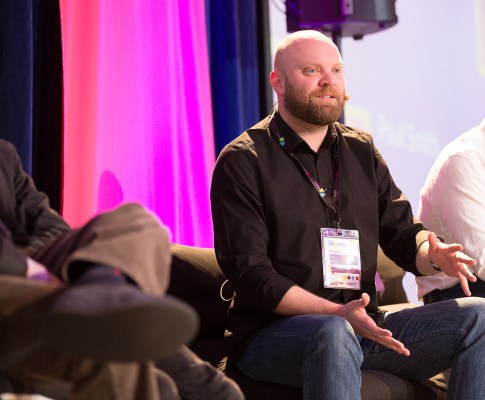In what seems like an end of an era, Paul Smith is stepping down as CEO of Ignite, the U.K.-based accelerator he founded almost five years ago. He’ll be replaced by Tristan Watson, current Ignite MD.
In that time, Ignite has run 7 programs, raised several funding rounds, seen a number of its alumni exit, and most recently expanded beyond its Newcastle base in the North East of England to the U.K. cities of Manchester and London.
But, arguably, Smith’s time at Ignite will be remembered most for his willingness to speak up and take action on issues relating to the tech startup ecosystem as a whole, not least the accelerator space.
He’s also not been afraid to take direct action to tackle the under-representation of women in tech, or to talk about mental health, and how founders can become complacent after raising a seed round.
In addition, Smith has long-championed startups outside of London — when virtually nobody else was — while building a bridge to the U.K. capital city and beyond. This has included the founding of Campus North, one of the largest startup co-working spaces outside London and the location for numerous community initiatives including coding classes for local school kids and adults.
It would be fair to say, however, that at times Smith’s outspokenness hasn’t made him everybody’s cup of tea.
In a call yesterday, he slightly (although not entirely) jokingly said it was time to “put a grownup in charge” of Ignite, as the business enters the next phase of scaling. This has seen the accelerator triple its full-time staff from 3 to 9 in the past 18 months, while I’m told revenue has grown over 500 per cent in the same time.
“I’m convinced there are better people than me to take Ignite to the next phase,” he says, arguing that the accelerator no longer requires someone as “gobby” as him as its head.
Ignite will shortly announce its intention to raise a £12 million acceleration fund to provide follow-on funding and match-funding in seed rounds for the most promising startups graduating from its programme. Next month it is also launching a major national education program called Tech for Life to provide communities with access to technology skills, business mentorship and peer support.
“Through partnerships and collaboration, and by developing its own curriculum, Tech for Life will make a material difference to the U.K. technology sector, by encouraging the next generation of entrepreneurs, developers, designers and engineers – whatever their age,” Smith tells me. “This involves programmes for female founders, adult education courses as well as events for schoolchildren and their families”.
Perhaps candidly, he says he has no idea what he will be doing next, although he’s excited to see what opportunities come up. However, he’ll also continue to support and advise Ignite, in which he remains a shareholder.
Given the way Smith has built Ignite and its community values in his own image I wouldn’t be surprised to see him join or found a social enterprise or non-profit, although that’s purely speculation on my part. He recently visited Africa for the first time, which he says was a useful reminder that there is a whole world outside of the tech startup bubble.
One thing he’s unlikely to be doing is joining or starting another accelerator. “I’ve had the opportunity to lead Ignite by my values with a team that lives and breathes them, so I’m not sure I’d want to work in another accelerator, certainly not in the U.K.,” says Smith.
He also remains critical of the status quo and as outspoken as ever. “Aside from Matt Clifford and Alice Bentinck at Entrepreneur First, I don’t really see anyone else challenging the accelerator model or supporting their communities,” he says. “There is so much resource and experience tied up in accelerators and their networks — I think London would be a far stronger community if other accelerators actively supported founders at times other than when they wanted something.”
That Smith exits Ignite with a characteristic parting shot shouldn’t come as a surprise to anyone who knows him or has followed the Ignite journey from feisty upstart accelerator to an important and valued part of the U.K. tech startup ecosystem. It’s also a journey that I’ve enjoyed watching and covering, and while Smith may have ruffled more than a few feathers along the way, the London/U.K. tech startup scene would benefit from a few more outliers like him.
